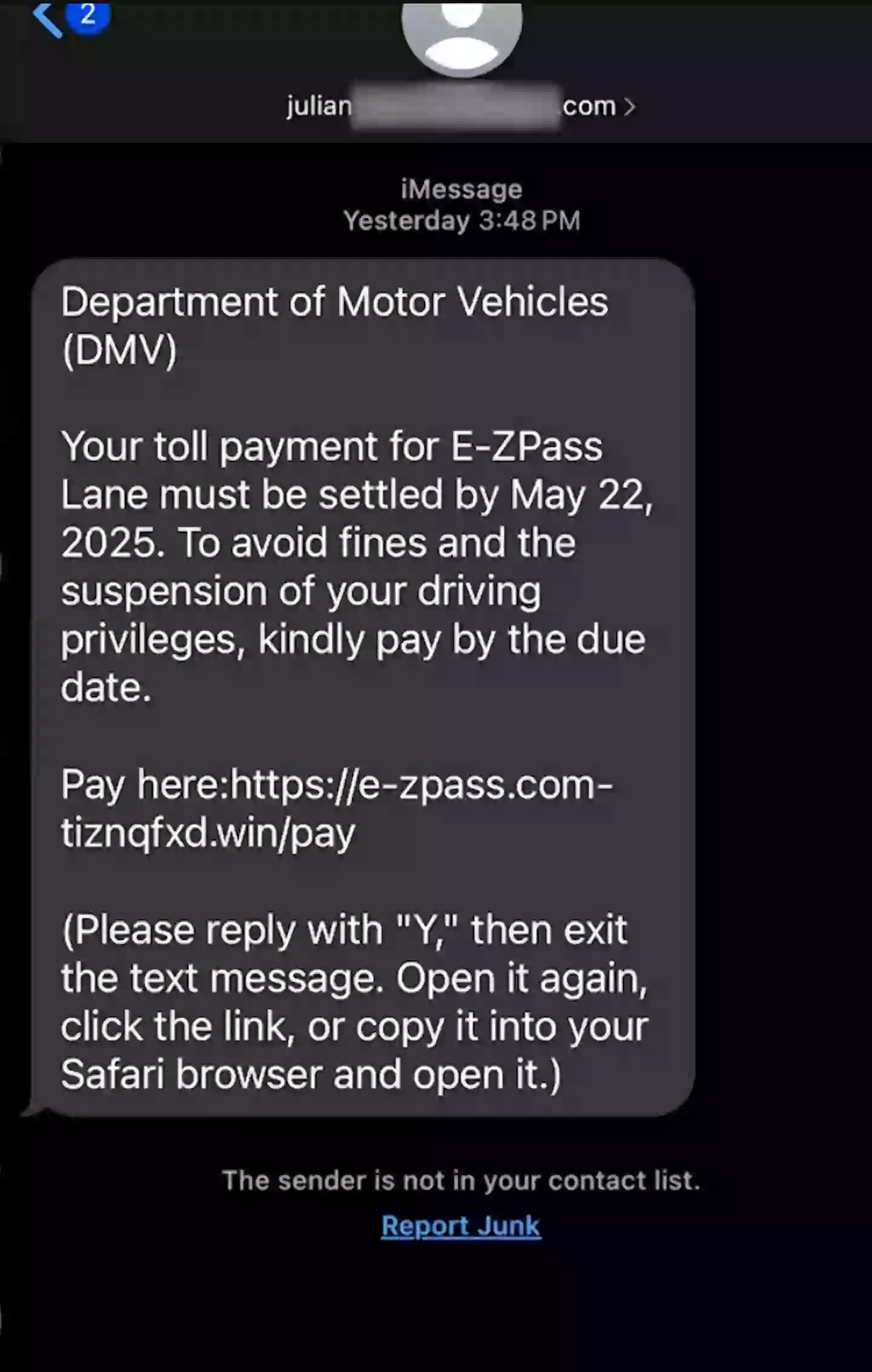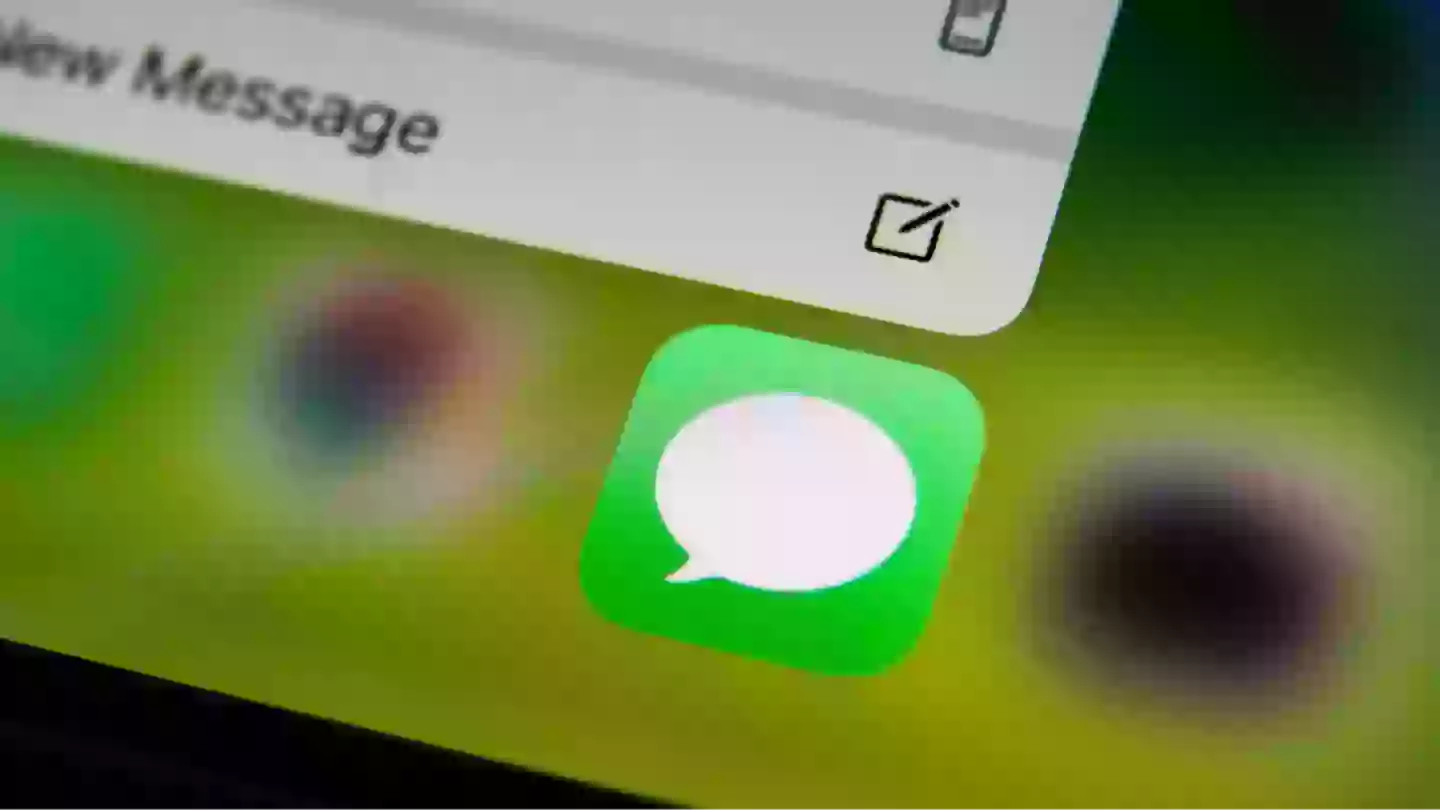iPhone users in the United States are being cautioned about a suspicious text message and are advised to delete it immediately if received.
While text scams are not uncommon, Forbes reports there has been a more than 700 percent surge in this specific type of text message over the past month.
This spike has led to police issuing alerts nationwide, and the FBI is also addressing the issue.
Americans have dealt with fraudulent unpaid toll messages for some time, but now these scams have evolved, with fraudsters impersonating the Department of Motor Vehicles (DMV) across various states.
These deceptive messages appear official and threaten recipients with the revocation of driving privileges or even jail time if an alleged unpaid fine is not paid.
Authorities warn that these messages are fraudulent attempts to steal personal information.
FBI Tennessee’s Supervisory Special Agent David Palmer highlighted that these texts can “put malware on your phone, which then can go in and steal information from your device, or collect your payment information”.
Palmer advised that if an unknown person sends a text with a link, it should not be clicked.
As a precaution, individuals are advised to remove these messages from their iPhone and Android devices immediately.
Guardio, a company specializing in protection against malware, identity theft, and phishing, has been monitoring these fake toll scams and observed a troubling “773 percent surge in DMV scam texts during the first week of June” alone.
“These scam texts lead to phishing websites designed to steal people’s credit card information and make unauthorized charges,” Guardio further explained, according to Forbes.

DMV Commissioner Mark J. F. Schroeder also addressed the issue.
“These scammers flood phones with texts, hoping to trick unsuspecting people into handing over their personal information. DMV will never send texts asking for sensitive details,” he clarified.
States impacted by these messages include Tennessee, New York, California, Florida, Georgia, Illinois, Texas, and Washington DC.
To protect yourself, do not click on any links within the text, nor should you respond. It is best to delete the message. If personal information has been shared, secure your accounts immediately.
Additionally, individuals are encouraged to report the incident to the FBI’s Internet Crime Complaint Center at IC3.gov, accessible here.

